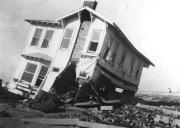A recent report on the state of distressed properties in the U.S. has generated some fairly dubious recent media stories. The figures on total short sales and REO/foreclosure sales by lenders show that close to one-third of all homes sold this spring were distressed homes, and the average sale prices of distressed homes sold were between 30 percent and 40 percent less than the prices of traditional resale homes. The study was published by RealtyTrac (a company that publishes and sells foreclosure information and doesn’t have a particularly accurate track record in my experience), and the distressed properties were defined as pre-foreclosure short sales and foreclosures that had been taken back by the bank and resold on the open market (REO).
While some media outlets like the Seattle Times latched on to the sales numbers, others have taken some creative license with the difference in sale prices of foreclosures. The Seattle P-I echoed RealtyTrac’s CEO’s use of the term “discount”, claiming that “Lenders offered increased discounts in recent months”. The story continued that “this gives distressed homeowners a better chance of selling”, even offering a front page headline, “Get ‘em while they’re cheap”. Inman News and Bloomberg, unfortunately, continued to parrot the use of the term discount.

While none of these reports are factually incorrect, the term “discount” is misleading. Discount has a very specific meaning to most consumers. When we receive a discount on an item we purchase, it’s a better deal. We’re getting the same item, just at a better price. Most readers see a headline about distressed homes in Seattle selling for a 37 percent discount, and believe that they can buy the same home that they’re currently interested in, but at a 37 percent reduction if it happens to be a distressed property.
While the representation of a discount is careless, it doesn’t even take into account the methodology of the report. The firm basically took two inconsistent sets of data and attempted a rudimentary comparison. As Inman reported, Realty Trac took the average price of all distressed home sales, and compared them to the average of all traditional resale home prices. That’s it. There was no adjusting for home sizes, lot sizes, condition, etc. Distressed properties, on average, are in poorer condition, have lesser-quality materials, and are smaller in size. The average distressed home may have been a 3 bed, 1.5 bath fixer, while the average traditional may have been a 4 bed, 2 bath remodeled home. Would any self-respecting analyst put those two homes side-by-side and make a conclusion about the entire market based on their sale prices?
Further, very few real estate researchers would use average prices as a method for comparing prices. Median prices are always more accurate for a market, as they don’t skew inordinately when a few large, multi-million dollar homes sell. RealtyTrac’s use of average prices skews the traditional sales prices higher (luxury, waterfront, and other expensive homes are vastly more often traditional resales), and creates the illusion of an even larger “discount”. A bigger discount means bigger headlines.
The National Association of Realtors got it right in their report. “Foreclosures Sell for Up to 40% Less.” There’s no indication that the homes are of the same quality, or that buyers are receiving a discount, just that their sale prices are lower. If you’re in the market for a foreclosure or short sale, you may very well be able to get a good deal, most likely by negotiating a nice “discount” with the lender. It won’t be 37 percent.
Our local market is nowhere near overflowing with Seattle foreclosures for sale. Buyers who are willing to purchase a home that may need some work and is sold AS-IS will find that there are some lower-priced distressed homes for sale in their area. They’re available on any real estate broker’s web site. Just don’t get caught up in the hype, or you may find yourself purchasing foreclosure listing information online, searching endlessly for that elusive 37 percent discount.

Comments(0)